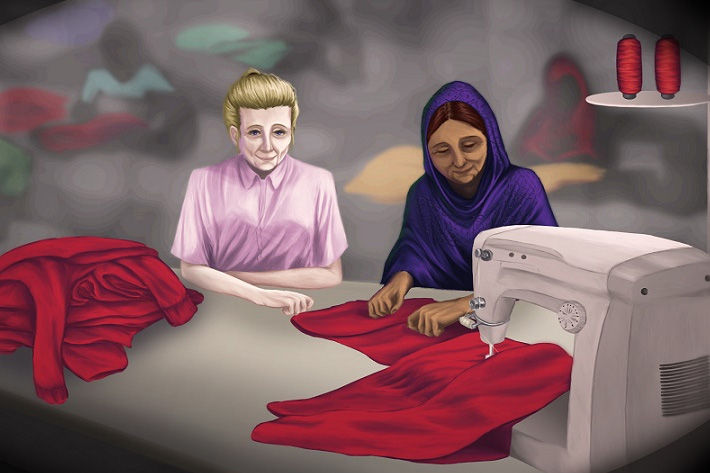
The researchers have published their findings, along with their recommendations for intervention, in a new report which will inform the Trust’s priorities for the coming year. The experts have recommended a few priority areas for major retailers and government agencies to focus on to improve workers’ lives and working conditions, according to a press release by the University of Nottingham.
Leicester workers took part in an anonymous questionnaire or interviews about their experiences of working in the garment sector and their ideas of how people's working lives can be improved.
There should be a single ‘front door’ contact point for workers wishing to make a complaint to enforcement agencies and offer ongoing support and case management for those who raise issues. It should be ensured that successful outcomes are communicated to raise levels of confidence. There should be a trusted support to advocate for workplace rights. This should engage with existing trades union initiatives but should also explore additional options for representation of worker voices, drawing on the experience of organisations that have experience in representing migrant workers, according to the reports by the University of Nottingham.
The workers should be connected with sources of community-based legal advice and support, available in a range of community languages. This support should cover immigration, housing and welfare rights in addition to workplace rights. There should be access to local educational services for workers and their families, particularly related to further education, and language support for younger children. The workers must be given sources of employment support, training, information and advice to enable them to access different types of work. They should engage closely with employers to create high-quality jobs that are accessible to a wide range of workers (including those with caring responsibilities or limited transport options).
Many workers that took part in the study identified limited employment options due to a lack of qualifications and job search skills, proficiency in English and - particularly for women - cultural expectations associated with family and childcare duties. They also expressed a wish to pursue additional training, particularly in relation to English language skills, IT skills, and practical topics such as first aid.
The researchers report that anti-exploitation measures have proved ineffective due to the isolation of workers, low expectations concerning the impact of raising concerns, and insufficient multi-agency collaboration at local level. The experts say that there are also continuing disincentives to employers to offer decent work, due to uncertainty about the financial returns possible within an ethical business model and a ready supply of workers with limited options.
“Garment workers told us that they want to build a beautiful future for the next generation in Leicester, but there are currently many constraints that stop them from accessing fair pay and conditions. Our report has added to the existing knowledge about these issues, but importantly also points to solutions suggested by workers themselves. We hope that the interventions outlined in our report can help to guide both local and national-level action in the years ahead,“ Alison Gardner, lead researcher, Rights Lab, said in a statement.
ALCHEMPro News Desk (GK)
Receive daily prices and market insights straight to your inbox. Subscribe to AlchemPro Weekly!